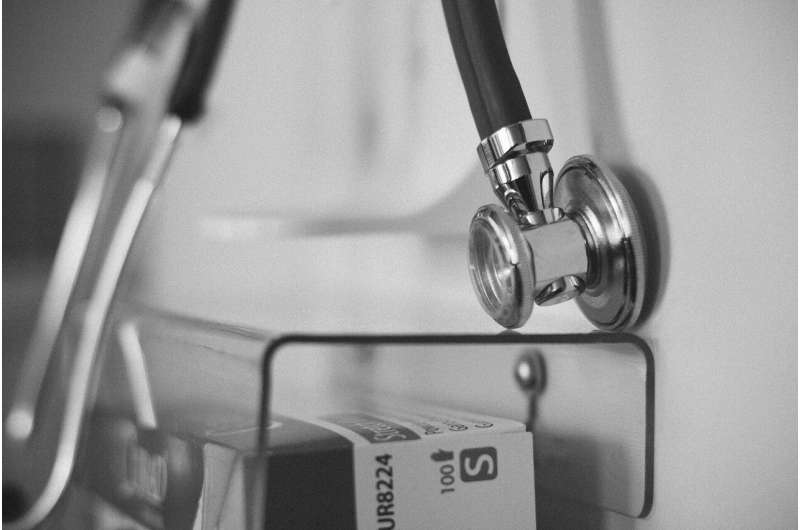This article has been reviewed according to Science X's editorial process and policies. Editors have highlighted the following attributes while ensuring the content's credibility:
fact-checked
peer-reviewed publication
trusted source
proofread
Hospital pneumonia diagnoses are uncertain, revised more than half the time, study finds

Pneumonia diagnoses are marked by pronounced uncertainty, an AI-based analysis of over 2 million hospital visits has found.
More than half the time, a pneumonia diagnosis made in the hospital will change from a patient's entrance to their discharge—either because someone who was initially diagnosed with pneumonia ended up with a different final diagnosis, or because a final diagnosis of pneumonia was missed when a patient entered the hospital (not including cases of hospital-acquired pneumonia).
The study describing the new results was published August 6th in Annals of Internal Medicine.
Barbara Jones, MD, MSCI, pulmonary and critical care physician at University of Utah Health and the first author on the study, found the results by searching medical records from more than 100 VA medical centers across the country, using artificial intelligence-based tools to identify mismatches between initial diagnoses and diagnoses upon discharge from the hospital.
More than 10% of all such visits involved a pneumonia diagnosis, either when a patient entered the hospital, when they left, or both.
"Pneumonia can seem like a clear-cut diagnosis," Jones says, "but there is actually quite a bit of overlap with other diagnoses that can mimic pneumonia."
A third of patients who were ultimately diagnosed with pneumonia did not receive a pneumonia diagnosis when they entered the hospital. And almost 40% of initial pneumonia diagnoses were later revised.
The study also found that this uncertainty was often evident in doctors' notes on patient visits; clinical notes on pneumonia diagnoses in the emergency department expressed uncertainty more than half the time (58%), and notes on diagnosis at discharge expressed uncertainty almost half the time (48%). Simultaneous treatments for multiple potential diagnoses were also common.
When the initial diagnosis was pneumonia, but the discharge diagnosis was different, patients tended to receive a greater number of treatments in the hospital, but didn't do worse than other patients as a general rule. However, patients who initially lacked a pneumonia diagnosis, but ultimately ended up diagnosed with pneumonia, had worse health outcomes than other patients.
The new results call into question much of the existing research on pneumonia treatment, which tends to assume that initial and discharge diagnoses will be the same.
Jones adds that doctors and patients should keep this high level of uncertainty in mind after an initial pneumonia diagnosis and be willing to adapt to new information throughout the treatment process. "Both patients and clinicians need to pay attention to their recovery and question the diagnosis if they don't get better with treatment."
More information: Diagnostic Discordance, Uncertainty, and Treatment Ambiguity in Community-Acquired Pneumonia: A National Cohort Study of 115 U.S. Veterans Affairs Hospitals, Annals of Internal Medicine (2024). DOI: 10.7326/M23-2505



















